|
50,000 HR PROFESSIONALS ARE CONNECTED THROUGH OUR NIRATHANKA HR GROUPS. YOU CAN ALSO JOIN AND PARTICIPATE IN OUR GROUP DISCUSSIONS.
|
|
0 Comments
We do engage people suitable to any position based on technical skills with expertise in the respective area. The engagement is based on an "Employment Contract" normally captioned as Letter of Appointment. The Employment Contracts may be normal ones and may incorporate certain conditions like non-compete, non-solicitation, non-disclosures of technical knowhow, serving the company for a stipulated number of years, if not, to claim un-liquidated or liquidated damages in case of any breach by either party, to safeguard Intellectual Property, etc. Any Employment Contract must stand the test of Law at any time, otherwise, it is a futile one. Hence, it is essential that while drafting an Employment Contract one must keep in mind its enforceability before a Court of Law. Hence, an attempt is being made in this direction to enlighten the professionals in this article.
Follow HR Learning Academy WhatsApp Channel by clicking the below link:
https://whatsapp.com/channel/0029Va4vHVm1CYoX8FwvPZ1h
By:
K. Vittala Rao Legal & Management Consultant and Author of Labour Law Books
Now, high time, HR, being a partner in business, to assertively exhibit its competencies in moving towards business goals. It is a project by itself to be owned by HR, and although challenging, is an essential & inevitable one.
Introduction
As we know, the HR Function was considered as an administrative assignment, but now, there has been a radical change and move towards alignment with Business Targets and supports all the functionaries of a Corporate thus eliminating any obstacles or indulging in addressing all related actions, like, talent acquisition, retention, man-management, developing healthy relations amongst all employees etc. The results achieved or accomplished are not in terms of objective quantification, but subjectivity. For instance, Finance, Production, Market expansion, Cost and profitability etc, in respective KRAs specifically fix objective targets. At any time of the year, one can debate easily, the movement towards the KRA. But, this is not so in HR-no objective KRA, no objective quantification, but highly subjective. No assertiveness exhibited anywhere even though there are several accomplishments. Here where, the development of an "Evidence Based HR" comes into picture. Here, the assessment of HR shall be very objective with quantification and even subject to HR Audit as well. Now, high time, HR, being a partner in business, to assertively exhibit its competencies in moving towards business goals. It is a project by itself to be owned by HR, and although challenging, is an essential & inevitable one. Follow HR Learning Academy WhatsApp Channel by clicking the below link:
https://whatsapp.com/channel/0029Va4vHVm1CYoX8FwvPZ1h Follow HR Learning Academy WhatsApp Channel by clicking the below link:
https://whatsapp.com/channel/0029Va4vHVm1CYoX8FwvPZ1h
“Training & Development” has been one of the segments of HR policy in most of the Corporates. Training Need analysis is normally drawn up depending on the business development, automatons, process change, skill development, rationalisations, productivity enhancements, quality & cost of product related, and most importantly soft skill inadequacies as assessed by the Management etc. HR, be on its own initiative drives or based on the annual program as required by the top Management carries out the programme.
Globalisation led the business to be competitive in acquiring market shares in foreign countries and necessary to import technology, liberal exports & imports, process and method changes including addressing cost of products which required automation and enhanced productivity with international quality standards. To accomplish these targets, cooperation, understanding to change, the role of employees was inevitable. For More details kindly click the below link: https://www.businessmanager.in/move-towards-developing-coaching-culture/
By:
K. Vittala Rao Legal & Management Consultant and Author of Labour Law Books
Courtesy:
Business Manager 1st October 2023 Follow HR Learning Academy WhatsApp Channel by clicking the below link: https://whatsapp.com/channel/0029Va4vHVm1CYoX8FwvPZ1h As we are aware, by the said Amendment Act of 2015, two major changes were introduced to the Payment of Bonus Act, 19652 : one being the amendment of clause (13) of Section 2, raising the salary limit from Rs. 10,000/- to Rs. 21,000/- per month for the purpose of coverage under the Act; and the other being raising the wage ceiling for calculating the bonus under Section 12 from Rs. 3,500/- to Rs. 7,000/- per month or the minimum wages for the scheduled employment as fixed by the appropriate Government, whichever be the higher. Further, by way of Explanation to Section 12, it was clarified that the expression “scheduled employment” shall have the same meaning as assigned to it in clause (g) of Section 2 of the Minimum Wages Act, 1948. These amendments were given retrospective effect in Section 1 of the Amendment Act of 2015 by providing that it shall be deemed to have come into force on 01.04.2014.
Hurdles of Sec. 9-A and Chapter V-B of I.D. Act and facing challenges in business due to open global market conditions and finding no support from Govt. in making suitable changes in Industrial Disputes Act, lead the Employers to accelerate the move towards “Collaborative Culture” and in fact, the Indian Industry has been witnessing, employee – employer relations going strong day by day.
We are very familiar and with adequate legal knowledge of the restrictive provisions under the Industrial Disputes Act, 1948, Dec. 9 A and Chapter VB. Ever since the adaptation of the Industrial Disputes Act in 1948 and even till date, these restrictive provisions still remain unamended in spite of several pleadings and representations to the Central Government every year. It may not be out of place to mention “Contract” as defined under the Indian Contract Act, 1872. The “Service conditions” as stipulated in the letter of appointments/Service Rules/Standing Orders are deemed to be Terms of Contract under the Indian Contract Act 1872. Any change/alterations in the terms of contract must be mutually agreed & accepted for enforcement. Otherwise, the Contract will be Void. For More details kindly click the below link: https://www.businessmanager.in/impediments-in-changes-in-service-conditions-a-blessing-in-disguise/ Courtesy: Business Manager 1st December 2023 Follow HR Learning Academy WhatsApp Channel by clicking the below link: https://whatsapp.com/channel/0029Va4vHVm1CYoX8FwvPZ1h
Labour reform is one of the most sensitising actions by the treasury bench that often knowingly or unknowingly is opposed not only by the opposition bench but often by the trade union outfit of the treasury bench. The fall out is obvious...once bitten, twice shy to implement. The Indian trade union movement is much more aligned with political ideology rather than syncing with the socio-economic reality. Within the prevailing geopolitical scape of the country often the actual reform takes the back seat. In a country even the mildest intervention attracts huge criticism in public platform and thus the ideas of reform are often shelved helping none other than the conflicting political outfits aiming for retaining and/or capturing support base from the industrial population. There is a growing un-unionised culture of certain knowledge based industries.
While I was flipping through the pages of the book "Frequently Asked Questions with Answers: Present Labour Laws and Upcoming Labour Codes" written by Hon'ble K Vittala Rao a significant recent experience cropped up in my mind and I take liberty to share the same. A few months ago, while checking the syllabus of a 2 years postgraduate HR (Major) program of a renowned institution I could not figure out any courseware for the students on the labour laws. When I enquired, the very closely connected interfacing HR Professor told me that they did not have any module on labour laws as students are not interested on them. Without getting into a debate about whether the institution is right by accommodating the student's choice on the courseware, being a stakeholder; I could not resist myself and asked the Professor that what the babies are going to do in corporates? Would they go to train people, or remain busy with recruitment calls or would engage only with lip services? The Professor appreciating my viewpoint humbly replied, "It is utmost important for budding HR managers to have working knowledge of labour Laws, else the legal framework of the HR system could not be understood, and the budding HR managers shall have serious repercussions in their careers".
Training Process & Assessment of Training Effectiveness
Sunday, Feb 12 • 11:00 – 12:30 Google Meet joining info Video call link: https://meet.google.com/ccc-qved-cmk S.N. Murthy Senior Advocate A batch of retired employees approached the Hon’ble Supreme Court seeking for benefit of higher pension since their employer and they themselves had paid EPF contribution on actual wages which was much higher than the prescribed limit for coverage. This ultimately resulted in an order passed on 04.10.2016, wherein the Learned Judges of the Hon’ble Supreme Court held that there was no cut-off date under the proviso to para-11 (3) of the Pension Scheme as it existed then, and so, the request of the retired employees for exercising option for higher pension should not have been rejected. With this, the retired employees who were before the Hon’ble Supreme Court got an option to seek higher pension.
K. Vittala Rao, B.Sc., B.L., DSSA
Legal & Management Consultant, Bengaluru
Our beloved mentor Mr. K. Vittala Rao has been conferred a lifetime achievement award by IHRD 2022 for his contribution to the community.
About K. Vittala Rao
Mr. K Vittala Rao is a Labour Law Expert with over 35 years of work experience in various reputed Companies – Corporate General Manager at Kirloskar Group, General Manager at Escorts Mahale and Goetze Ltd., [Federal Mogul], Triveni Engineering Works Ltd., GKW, John Fowler India Ltd., Gokak Mills as Head of HR & IR.
Shops & Commercial Establishments Vs Occupational Safety, Health & Working Conditions Code 2020.7/13/2022 K.Vittala Rao. Legal & Management Consultant. Bangalore The views in this article are author’s point of view. This article is not intended to substitute legal advice. An Area of Concern to be addressed by the Central as well as State Governments and also by all professionals. Now, we are very familiar with the provisions of Occupational Safety, Health & Working Conditions Code 2020.
The draft rules based on the Central Draft Rules, also have been published by most of the State Governments. It is appropriate now to deeply analyze various implications arising out of the Code. The Code has repealed the existing legislations under the scope of the Code, mainly Centrally enacted with State Rules for implementations. The Code has not touched upon any State Legislations like, Shops & Commercial Establishments Act, Labour Welfare Fund Act, National Festival Holidays Act etc. Arising out of this, we need examine the enforceability of Shops & Commercial Establishments Act with Rules and the controversies while deeply examining the Code. Are there are any overlapping or the extent of repugnancy? Hence, I have made an attempt to analyze and present to all Legal Practitioners, HR Fraternity and no exceptions to State / Central Authorities.
M.R. Nataraj
General Manager-HR, Bharat Fritz Werner Limited
A real man is he or she who lives after death. Similarly he or she is the real employee who remains to be an employee even after the leaving the employment of an employer.
In the employment life of a person employment, resignation, reemployment etc are common. Especially in the current employment world, post COVID, number of cessations, voluntary as well as involuntary are huge in numbers. Though a few, there are employees, who are often disgraceful in their communication about the employment resignations. Conveyance Allowance is not wages for ESI | Wage Definition for ESI Contribution | Texmo Case5/5/2022
|
HR Learning and Skill Building Academy50,000 HR PROFESSIONALS ARE CONNECTED THROUGH OUR NIRATHANKA HR GROUPS.
YOU CAN ALSO JOIN AND PARTICIPATE IN OUR GROUP DISCUSSIONS. |
||||||||||
site map
SitePUBLICATIONSJob |
HR SERVICESOTHER SERVICESTraining |
POSHNGO & CSROur Other Website:subscribe |
30,000 HR PROFESSIONALS ARE CONNECTED THROUGH OUR NIRATHANKA HR GROUPS.
YOU CAN ALSO JOIN AND PARTICIPATE IN OUR GROUP DISCUSSIONS.
YOU CAN ALSO JOIN AND PARTICIPATE IN OUR GROUP DISCUSSIONS.
Copyright : MHRSPL-2021, website designed and developed by : www.nirutapublications.org.

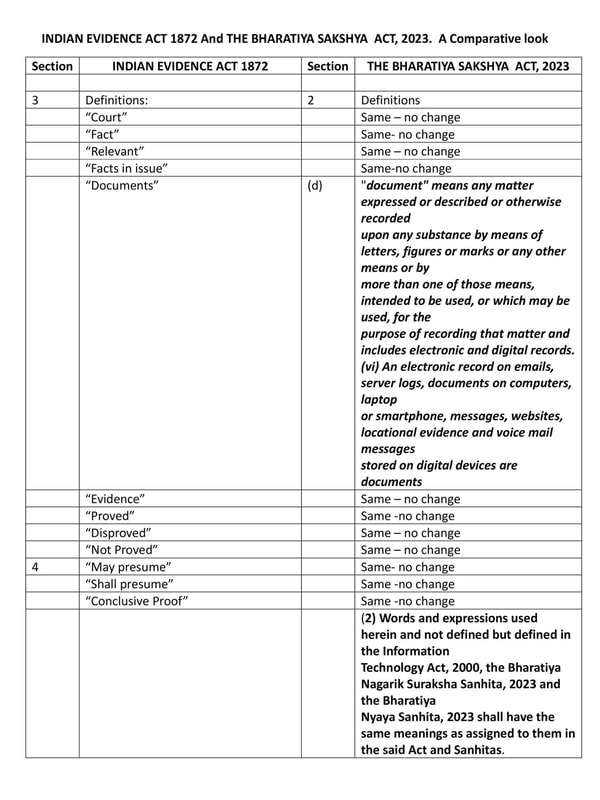


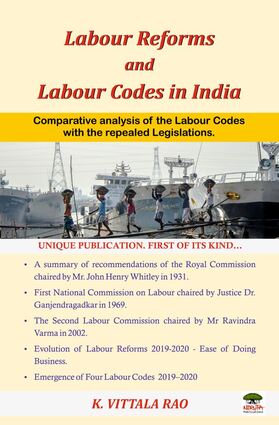
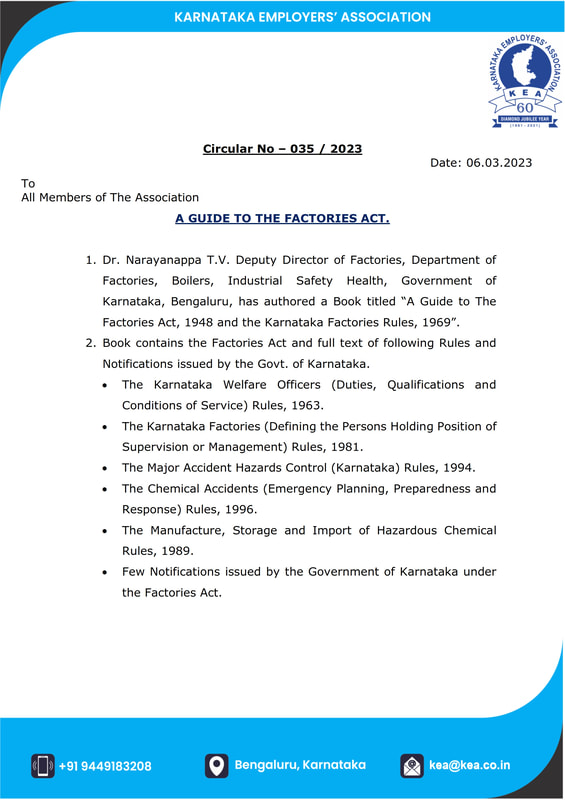
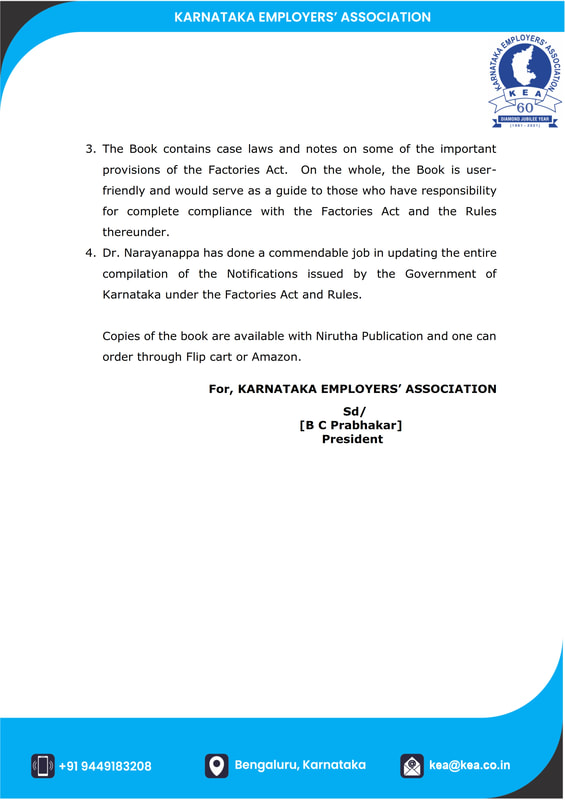
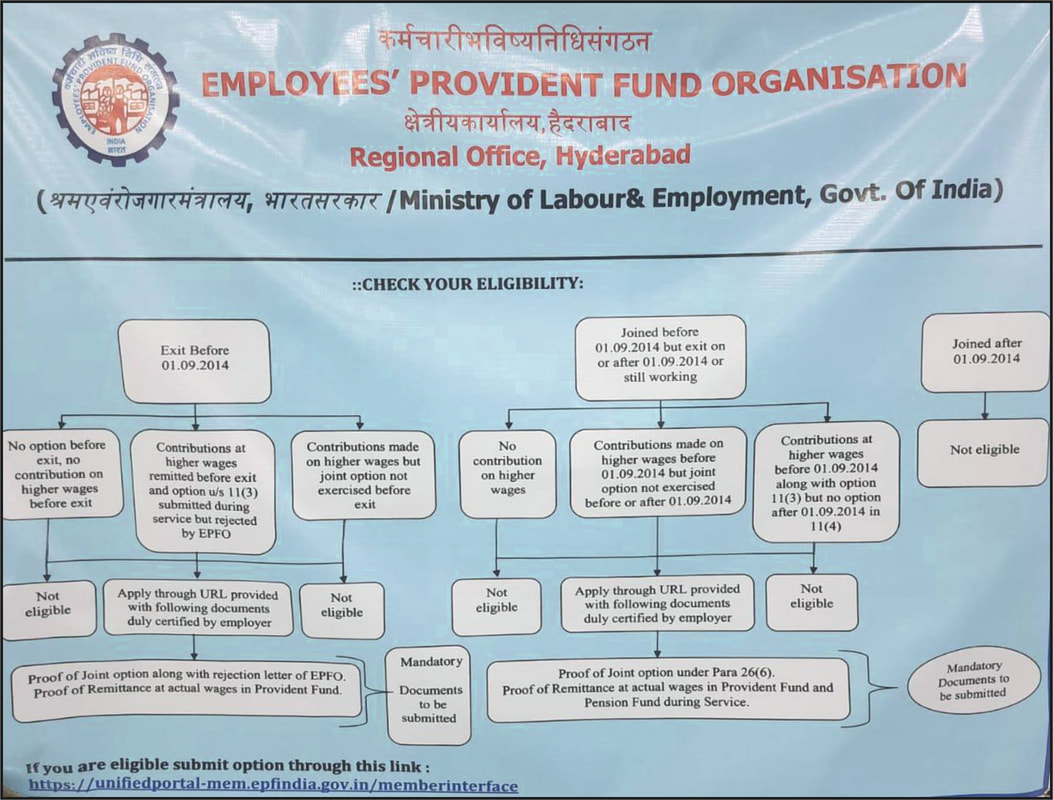
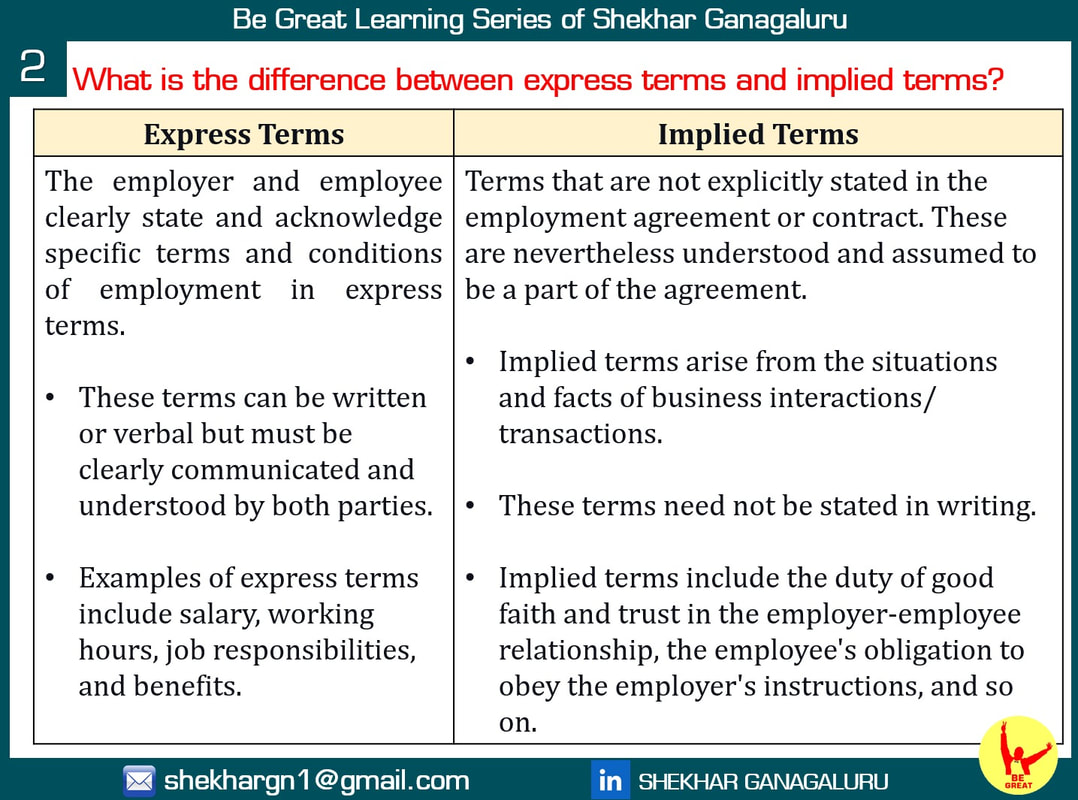
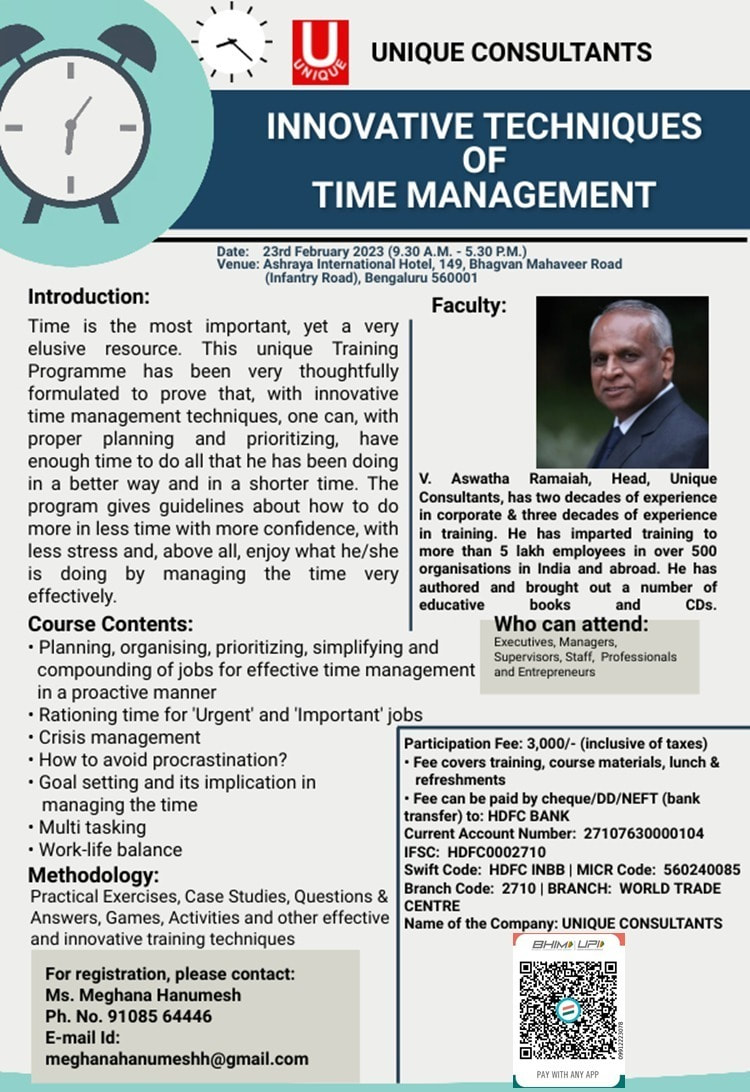
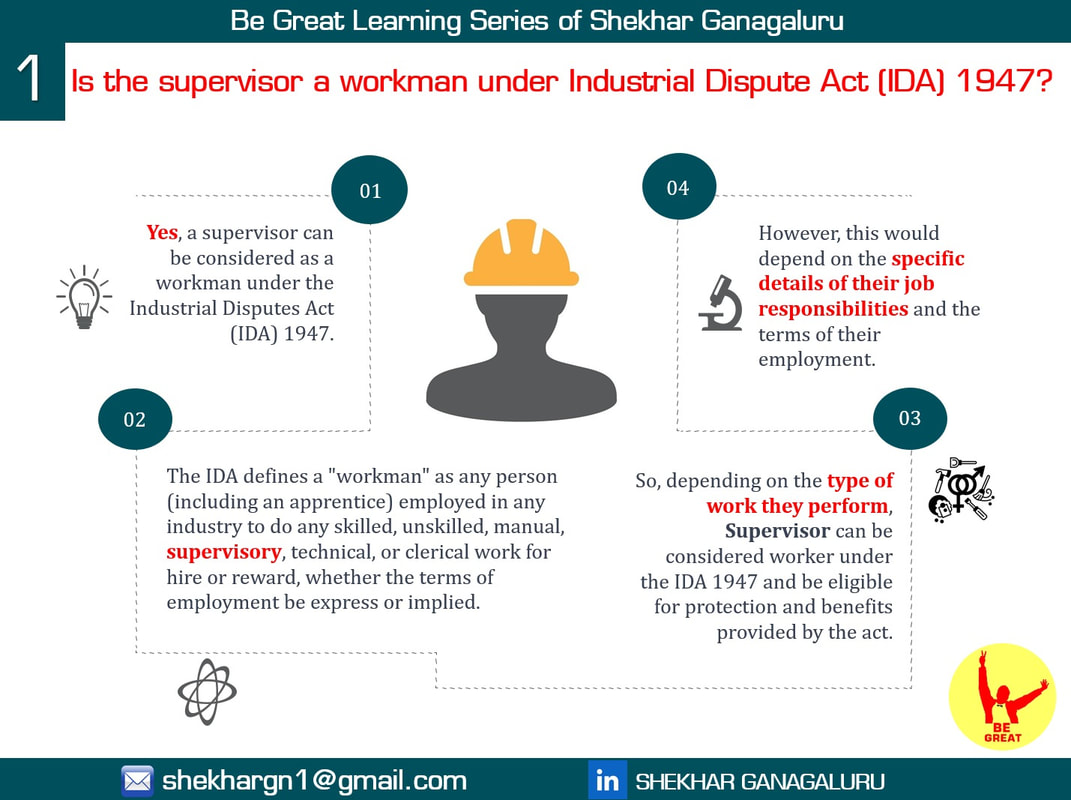

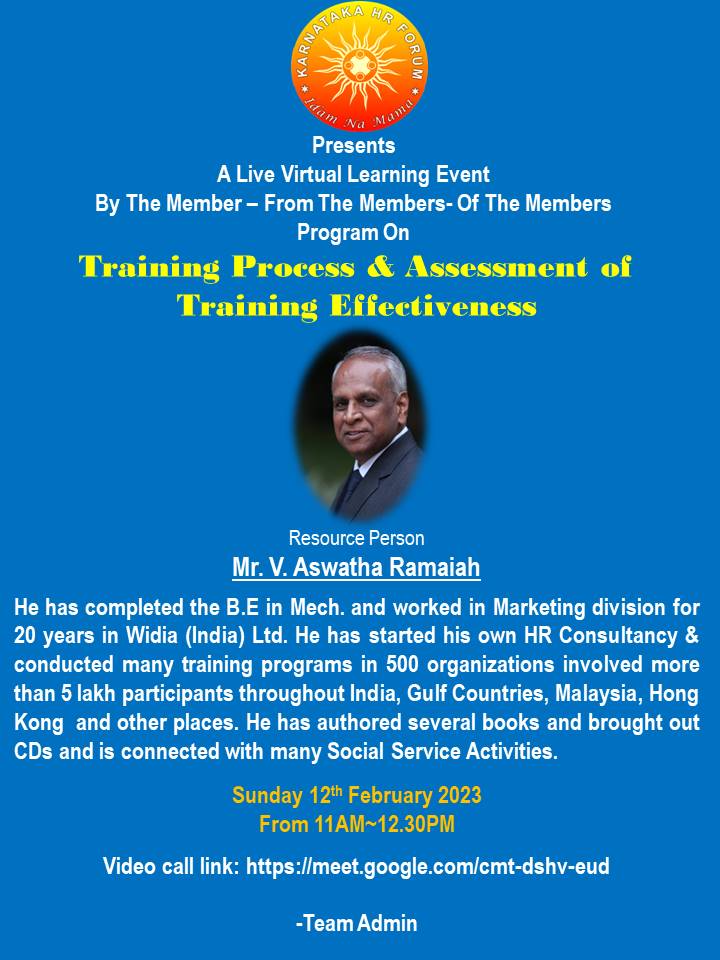
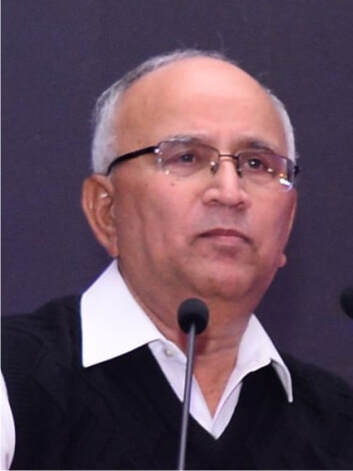

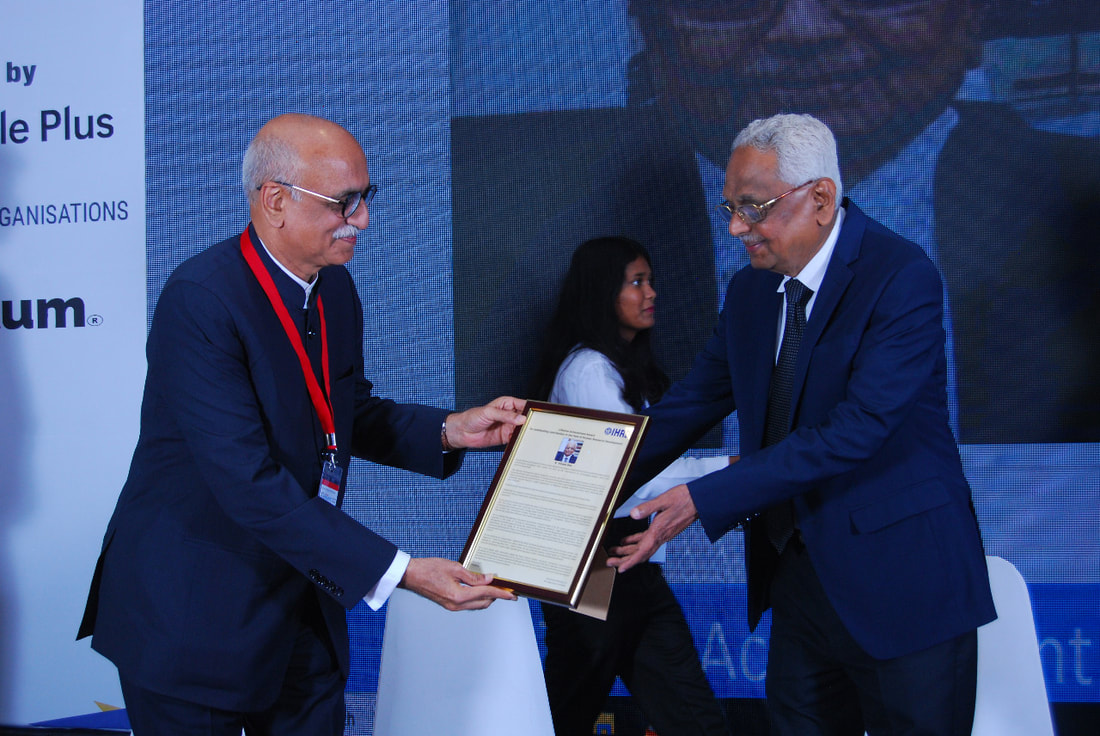
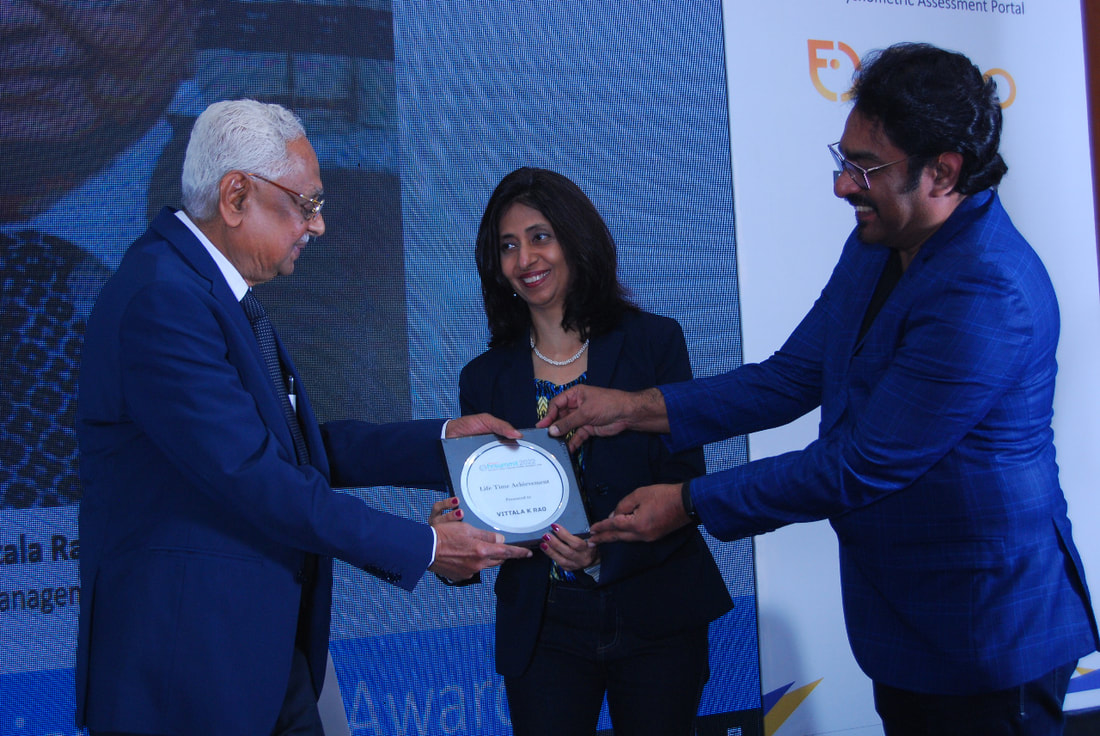







 RSS Feed
RSS Feed





